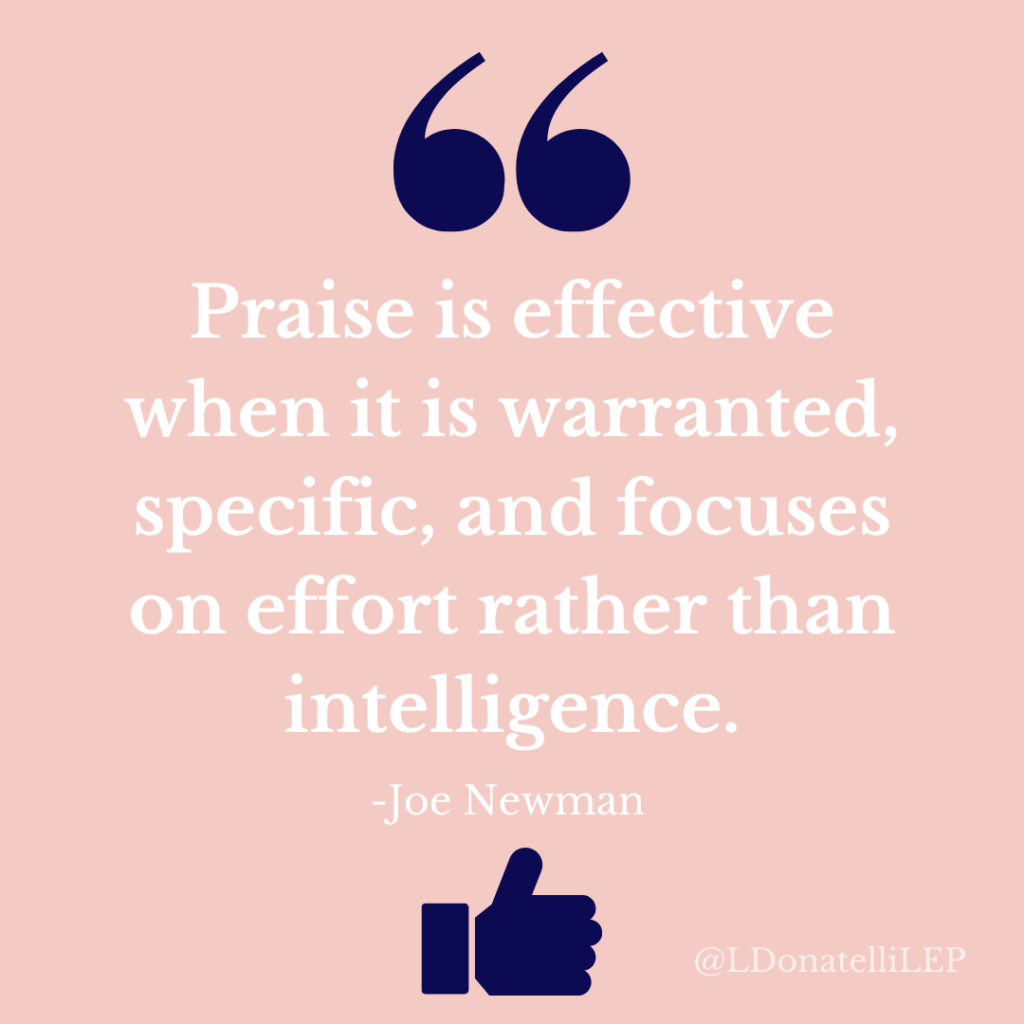
“Good job!” We say it all the time, to our friends, our family, our coworkers, and of course, our kids. It comes from a place of being proud, pleased, and impressed. It’s said with the intent of making the other person also feel proud, and pleased. So, what’s the problem? To start, saying “Good job,” does not provide very much information to the recipient, other than to convey that they are doing something that makes you happy. What it is specifically that is pleasing, however, might get lost in translation. If a child is playing nicely with his brother, and you tell him, “Good job”, he might understand that you are pleased with him, but it could be any number of things that he is doing that is the reason he is doing a “good job”. Is it putting together the train tracks, using a quiet voice inside, taking turns? Instead, a specific praise of, “I see that when you give your brother a turn with the train, you both seem to really be enjoying yourselves,” gives him the feedback that when he shares, other people around him feel good, and want to continue playing with him. Also, there is the issue that there is a tendency to praise the outcome, as opposed to the process. A child who is told, “Good job,” after putting together the train track might believe they are being praised because the train track is put together well. Instead, a praise of the child’s focus, problem solving, perseverance, patience, or creativity would provide more information, and convey the message that no matter the outcome, the effort was still worth praising. These are just two of many reasons why a blanket statement of “Good job,” is not always as positive as it was intended to be.
Here are some examples of more informative verbal praises that can replace the blanket “Good job!”-
“I see that your eyes are on me, your mouth is quiet, and your body is calm. I appreciate you listening while I give you instructions. Thank you!”
“Wow! I see how hard you are working! Your eyes are on your paper, and you’ve been working out the math problems ever since we started. Nice job!”
“Thank you for listening to me the first time I asked you today! I really appreciate that!”
“I saw that you were about to grab the Lego away from your brother, but then you stopped, and asked if you could use it instead. That was awesome! He gave it to you right away, and everyone got to keep playing. You both seem to be having a good time playing with the Legos together.”
“Thank you for helping to keep our home tidy by picking up your toys, and putting them away once you’re done playing with them. I really appreciate that!”
“Nice job moving at a good pace while you’re getting ready for school this morning! You might even have some time to draw before we go!”
“You must have spent a lot of time, and worked hard to learn all of those new sight words. Great work!”
Something to keep in mind, is that this is a hard habit to break. So don’t feel bad if you’re reading this, and thinking about how “Good job,” is your “go to” for verbal praise. I catch myself all the time, and when I do, I just try to follow up my “Good job,” with another, more informative comment.